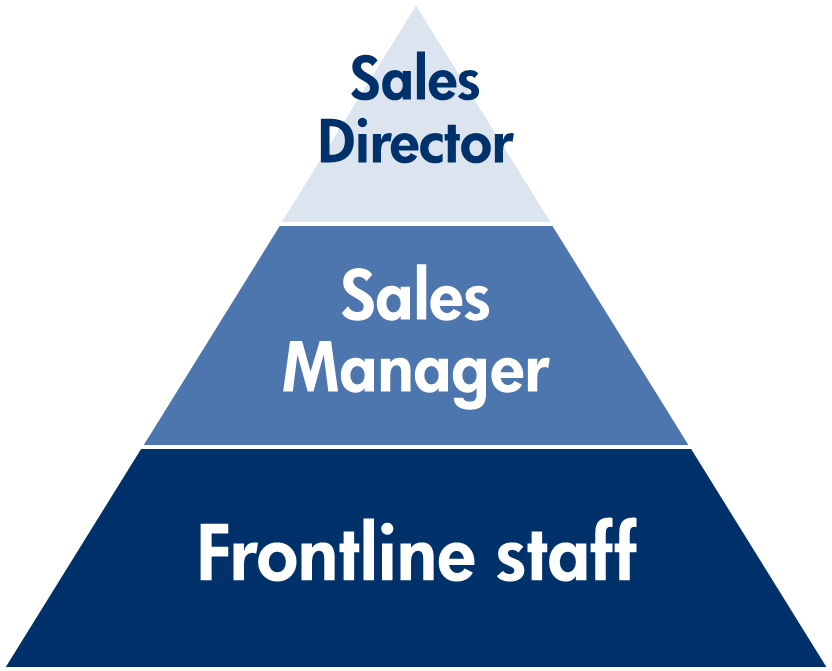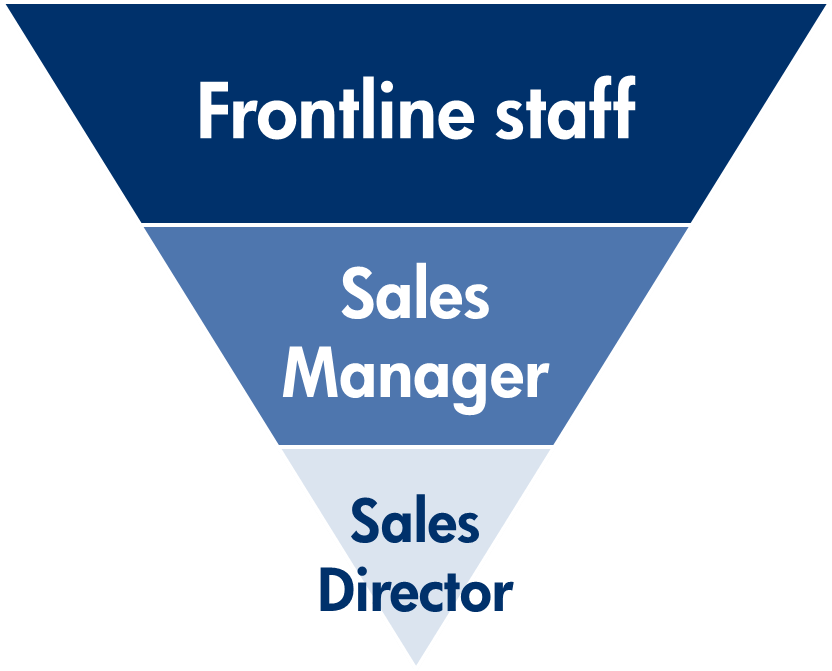What Makes an Outstanding Sales Manager?
A sales director’s perspective
With the launch of our new Sales Management Programme imminent, we are answering the most important question associated with those in sales management – what makes an outstanding sales manager?
To answer this, we have drawn upon the knowledge of none other than Imparta’s Chief Commercial Officer, Janet Garcia. Janet has enjoyed a dynamic career in sales, starting as a salesperson herself, and is now firmly established as one of the top sales leaders in the training and consultancy sector.
We asked Janet what, in her view, makes a manager successful within sales?
What everybody presumes about the hierarchy in sales…

The conventional view of hierarchy within an organisation is that it is a pyramid structure, with all the frontline staff at the bottom, sales managers on the next layer up, and the sales director at the top. The traditional view is that all the layers beneath the director/leader are there to serve the person at the top of the pyramid.
How the sales hierarchy should really look…

However, in my experience, those that are most successful in sales management/leadership are the ones that flip the triangle the other way. Effectively, the leader sits at the bottom and is there to serve all the frontline staff, who now sit at the top of the pyramid. The leader is responsible for the overall performance of the team and the targets associated with this responsibility, without having ownership of all the individual accounts. Outstanding performance will only be achieved if everyone in the frontline achieves their own individual targets. The day I realised that my team’s success is my success was the day I started to give them the support and leadership that they required.
So how is this done?
In order to drive success, you have to have the right team – you are only as strong as your weakest link. Ensure that you are behind them and that any direction given, will contribute positively to the end goal, rather than deter from it. The manager should spend all their time concerned with the obstacles that are preventing the target from being met. This may come in many forms: what’s wrong with the proposition? How are we positioned against the competition? How is each individual pipeline looking? Are there issues in delivery or marketing that are stopping us selling more?
The salesperson to sales manager’s transition is complete when…
When a top-performing salesperson moves into a management position it is a huge change, and the power can go to their head. This is exacerbated by the fact that there are many weak sales managers out there, so through bad habit, poor management behaviours are learned. If the new manager thinks they are more important than their team or try to make individuals replicas of themselves, then success is not likely. When you flip that attitude around and realise you are there to serve your frontline staff and the organisation and get the most out of each individual, playing to their strengths rather than criticising their weaknesses, then you have made the successful transition from salesperson to sales manager and, eventually, leader. The moment the sales manager realises they are part of the team and not more important than the team… they are a good sales manager!
How can Imparta help with this?
The core philosophy that underpins our Sales Management Programme encompasses the emotional and behavioural aspects to management, as well as the more tactical forecasting, pipeline management and performance management elements that come with a role of responsibility within sales. Combined, these give sales managers the tools that will equip them to be outstanding in their role.
If you would like to read more about the components of the programme, then please click here or Contact us.


